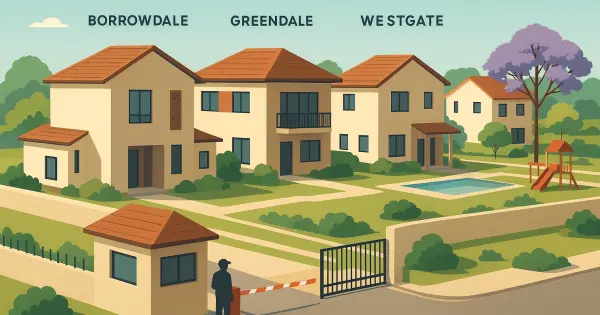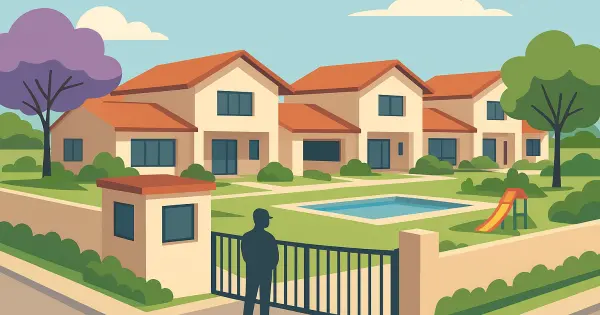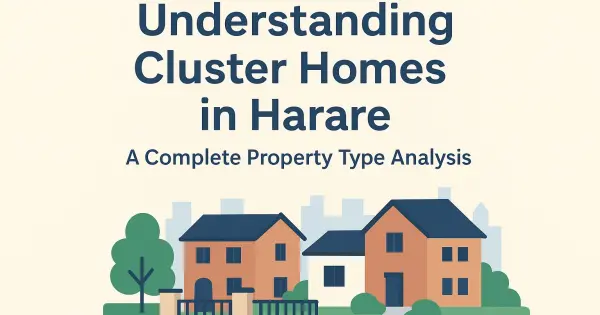Photo by Letizia Bordoni on Unsplash
Becoming a homeowner is a significant milestone for many Zimbabweans, both locally and in the diaspora. However, the decision to build or buy a home is not always straightforward.
Both options come with unique advantages and challenges. It is therefore crucial to evaluate which course aligns best with your financial, personal, and lifestyle goals. Let’s explore the critical factors that can help you decide whether to build or buy.
Understanding the Real Estate Landscape in Zimbabwe
Zimbabwe’s real estate market has seen fluctuating trends due to economic conditions, currency instability, and demand dynamics. For instance, the market may lean towards being a buyer’s market during periods of subdued demand or a seller’s market when competition for homes is high. These conditions significantly influence your choice between building and buying a home.
For more on market dynamics, you can read our detailed article “Buyer’s or Seller’s Market,” which provides insights into recognising the best times to invest in property.
Building a Home: What You Need to Know
Zimbabwe’s real estate market is prone to fluctuation. Currency supply and demand constantly trade places. When demand is high, you have much more buying power, but when demand is low, competition for homes tends to be higher and it then becomes a seller’s market.
In such cases, there are many advantages to building a home:
1. Customisation and Personalisation: Your home, your design! From architectural design to interior finishes, building allows you to create a space that meets your unique needs, instead of starting on top of someone else’s expectations.
2. Cost Control: With careful planning and budgeting, building your own home can be more cost-effective. This is especially if you already own land or source materials strategically. Without such diligence though, costs can escalate rapidly.
3. New Infrastructure: New and competent plumbing, wiring and materials mean that your new home will not suffer from the unforeseen wear and tear that a purchased home would levy against your wallet.
4. Flexible Location Choices: If you are unsure where to build, our article I Am in the Diaspora: Where Should I Build/Buy My Home? can help you identify locations that suit your lifestyle or investment goals.
However, there are some associated challenges to building a home that are important to consider as well:
1. Time-Consuming Process: Obviously, building a home takes significantly longer than buying. It’s a process that requires patients for critical, but time-consuming activities of securing permits, sourcing materials, finding a reputable construction company, the architecture and budget creation and management.
2. Risk of Budget Overruns: Without careful planning and considerations, particularly with Zimbabwe’s unpredictable markets, budget overruns are a likely occurrence.
3. Project Management Stress: There is much more stress involved in managing the construction yourself. It’s a matter of working with reliable contractors and suppliers, setting and reaching scheduling checkpoints, and identifying potential delays and subpar workmanship.
On the converse to the benefits and stresses of building your own home, there is the alternative of simply buying a home outright. However, this also has its own set of advantages and drawbacks.
Advantages of Buying a Home
1. Immediate Occupation: When you purchase a ready-built home, you can move in as soon as the transaction is done. That makes it ideal for those in urgent need of housing.
2. Established Neighbourhoods: Buying often allows you to settle in areas that are already developed to some extent. Schools, roads, and shops, other social facilities and infrastructure—all these are readily available. For example, most properties listed on Propertybook offer excellent access to urban-life amenities.
3. Predictable Costs: One of the main advantages of buying over building is that you can know the fixed and final price when all is said and done. Unlike building, buying a home comes with a fixed price, which makes financial planning more straightforward. For guidance on determining whether a property is priced correctly, refer to our article “How Do You Price a Home Correctly to Sell?”
Limitations of Buying a Home
1. Limited Customisation: When you buy, you inherit the previous owner’s design choices, furniture or paint colour which you can change only at extra cost.
2. Potential Maintenance Issues: Older homes may come with undeclared and potentially costly issues that could show themselves over time such as faulty wiring or leaky roofs.
3. Higher Initial Costs: Depending on the property, you might need to pay a significant amount upfront, especially for homes in sought-after areas.
Wealth Tax and Its Implications for Homeowners in Zimbabwe
It is essential to consider the impact of Zimbabwe’s wealth tax policies on homeownership. Wealth tax, which is levied on properties above a certain value, can influence your decision to buy or build. For instance, high-value homes attract higher taxes, which might sway you towards constructing a modest property. Understanding these financial implications can help you make a more informed choice.
Factors to Consider When Deciding
1. Budget and Financing: How much can you afford, and do you have access to reliable financing options? Assess the costs associated with land purchase, construction, or acquiring a ready-built property.
2. Time Constraints: If you need a home quickly, buying might be more practical. However, if you have the time and patience, building allows for greater personalisation.
3. Future Plans: Consider whether you intend to use the property for personal use or as an investment. Properties in high-demand areas tend to appreciate faster, whether built or bought.
4. Real Estate Agent Expertise: Collaborating with a knowledgeable agent can make a significant difference. Our article Choosing the Best Agent to Sell Your Home offers tips on finding agents who understand your needs and the market dynamics.
Frequently Asked Questions
1. Is it cheaper to build or buy a home in Zimbabwe?
The cost depends on factors such as land prices, material costs, and the location of the property. Building can be cheaper if you already own land and manage the process efficiently. However, buying might be more economical in areas with competitive property prices.
2. How long does it take to build a home in Zimbabwe?
Building a home can take anywhere from a few months to over a year, depending on the size and complexity of the project, as well as potential delays caused by supply chain issues or permit approvals.
3. What should I consider before buying a home?
Key considerations include the property’s condition, location, market value, and proximity to essential amenities. For a detailed guide, refer to “How Do You Price a Home Correctly to Sell?”
4. What are the risks of building a home?
The main risks include budget overruns, project management challenges, and delays due to unforeseen circumstances, such as weather or material shortages.
The decision to build or buy a home in Zimbabwe ultimately hinges on your individual needs, financial capacity, and long-term goals. While building allows for personalisation and cost control, buying offers convenience and immediate occupancy. By weighing the pros and cons of each option and consulting trusted professionals, you can make an informed choice that aligns with your aspirations.
For more insights into the Zimbabwean property market, explore our articles on Propertybook’s Blog. Whether you are a buyer, seller, or builder, understanding the nuances of the market will empower you to navigate your real estate journey confidently.




